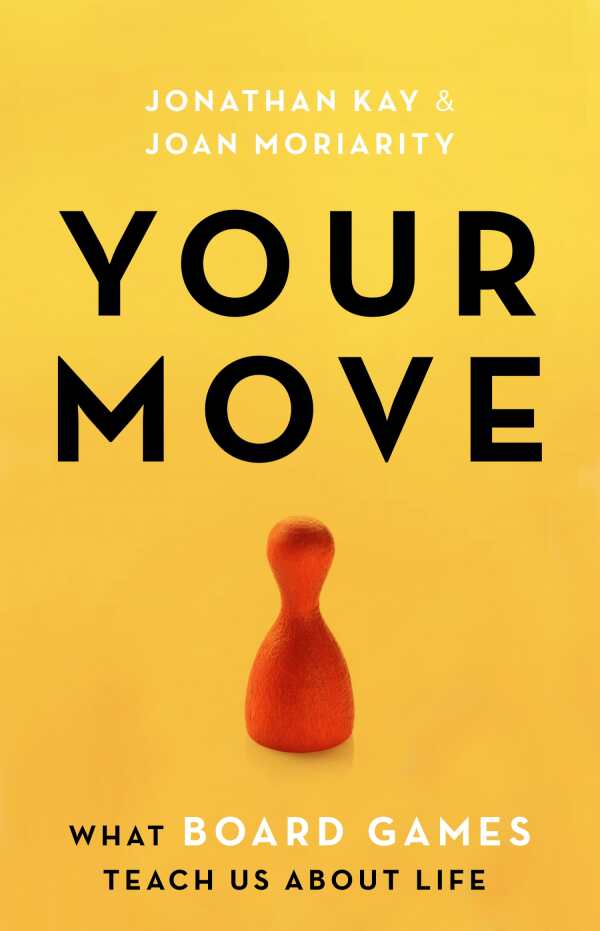Your Move
What Board Games Teach Us About Life
Packed with delightful history and trivia, Your Move makes an irresistible case for reviving offline games.
Joan Moriarity and Jonathan Kay’s Your Move elucidates the renaissance of board games, the ways they mirror society, and their place as an art form and pastime.
Moriarity—who works at a board game café—and Kay write separate essays in this intelligent compendium that mines history, game design, and psychology. They explore lessons that transcend the typical reasons for playing games, which often include family time and cognitive development, and consider a game’s potential to shape people’s thoughts about their environment and themselves. An appealing blend of facts, personal experience, and cross references bind the collection.
A clear explanation of Eurogames contextualizes them in a post-war climate that emphasized world building. Classic examples, such as Settlers of Catan and Agricola, illustrate their differences from American games. For adults that are more familiar with nostalgic, roll-the-dice games, this introduction to strategic alternatives is helpful and highlights accessible titles, with only a few dips into connoisseur games.
Both Kay and Moriarity admit that some games don’t enthrall them. They give lucid reasons for calling a game’s mechanics weak, and show why some require certain mindsets: Scrabble appeals to people with spatial reasoning and memorization skills, for example. These deconstructions still leave room for others to enjoy them.
The book shows that gaming conventions underscore how there are many subcultures within a community. For all its encouragement that everyone can enjoy games and find those that are suitable to them, the book is careful to note a lack of diversity in the industry and among players that keeps some people from participating.
A thought-provoking essay on cultural appropriation explores the role-playing game Puerto Rico and other games that rely on colonial themes, while an essay on the board game Greenland examines a positive representation of Indigenous people. These problematic and successful examples of subgenres reveal their multifaceted natures, while observations that games don’t always transfer into beliefs reveals the discomforting rupture between a game’s accepted, contractual play space and reality.
Examples lean toward Eurogames, cooperative games, and American classics that support multiple players, rather than “pure” abstracts. This choice suits the book’s emphasis on social engagement and group dynamics. At times, the links between games and life seem tangential, as with a connection drawn between resource-allocation games and their tendency to foster alpha players that explores how the same situation might manifest in an office. Monopoly is used as an example of unstable systems in a fascinating way, but one that is extraneous to what most players think about. Still, these original approaches help to elevate tabletop games into cultural artifacts that reflect wider trends.
Packed with delightful history and trivia, Your Move makes an irresistible case for reviving offline games.
Reviewed by
Karen Rigby
Disclosure: This article is not an endorsement, but a review. The publisher of this book provided free copies of the book and paid a small fee to have their book reviewed by a professional reviewer. Foreword Reviews and Clarion Reviews make no guarantee that the publisher will receive a positive review. Foreword Magazine, Inc. is disclosing this in accordance with the Federal Trade Commission’s 16 CFR, Part 255.

